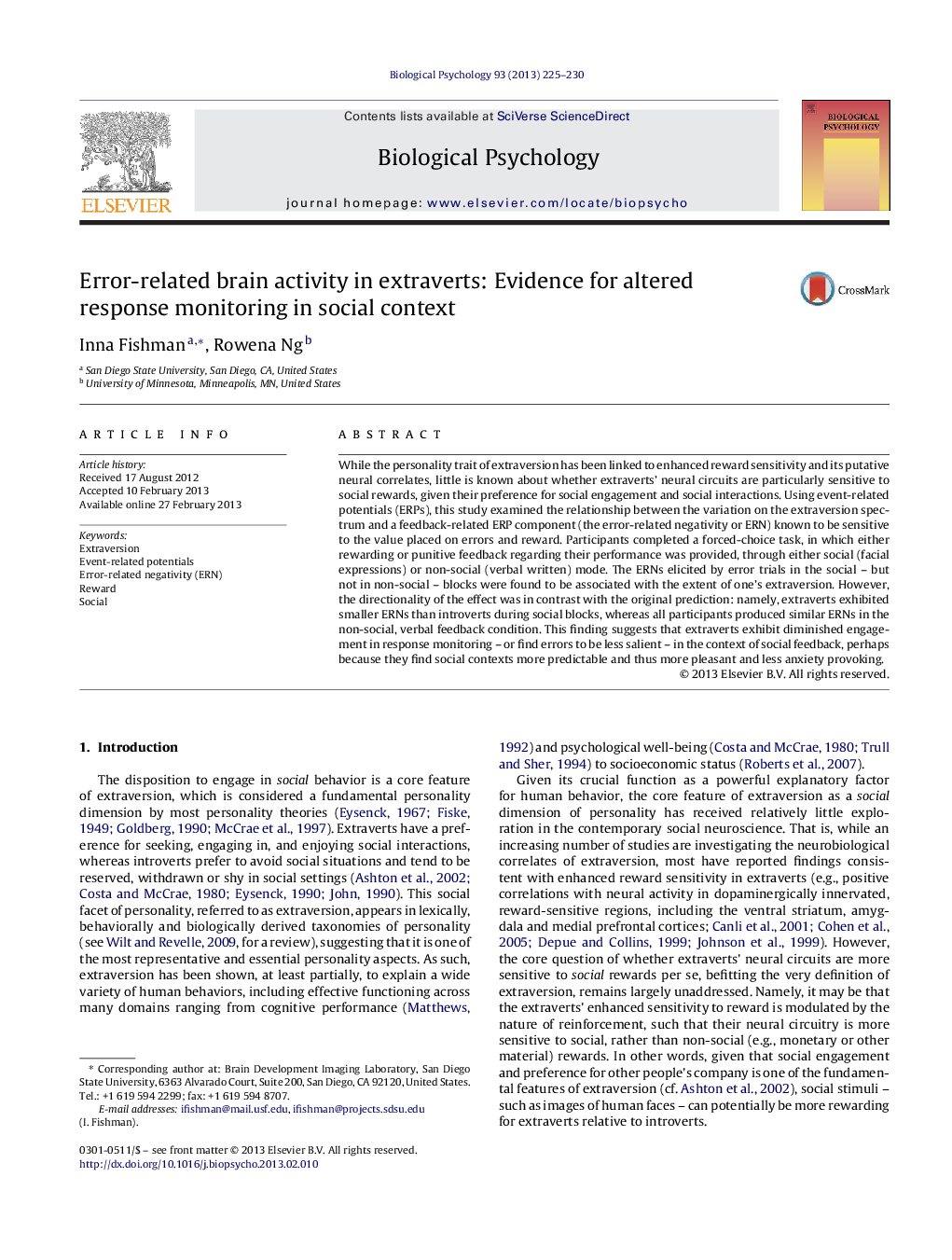| Article ID | Journal | Published Year | Pages | File Type |
|---|---|---|---|---|
| 921004 | Biological Psychology | 2013 | 6 Pages |
While the personality trait of extraversion has been linked to enhanced reward sensitivity and its putative neural correlates, little is known about whether extraverts’ neural circuits are particularly sensitive to social rewards, given their preference for social engagement and social interactions. Using event-related potentials (ERPs), this study examined the relationship between the variation on the extraversion spectrum and a feedback-related ERP component (the error-related negativity or ERN) known to be sensitive to the value placed on errors and reward. Participants completed a forced-choice task, in which either rewarding or punitive feedback regarding their performance was provided, through either social (facial expressions) or non-social (verbal written) mode. The ERNs elicited by error trials in the social – but not in non-social – blocks were found to be associated with the extent of one's extraversion. However, the directionality of the effect was in contrast with the original prediction: namely, extraverts exhibited smaller ERNs than introverts during social blocks, whereas all participants produced similar ERNs in the non-social, verbal feedback condition. This finding suggests that extraverts exhibit diminished engagement in response monitoring – or find errors to be less salient – in the context of social feedback, perhaps because they find social contexts more predictable and thus more pleasant and less anxiety provoking.
► We examined whether extraverts are particularly sensitive to social rewards.► An ERP component known to be sensitive to reward (ERN) was utilized.► The ERN was measured in either social or non-social condition.► Extraverts exhibited smaller ERNs than introverts during social blocks.► Extraverts find social contexts more predictable and less anxiety provoking.
